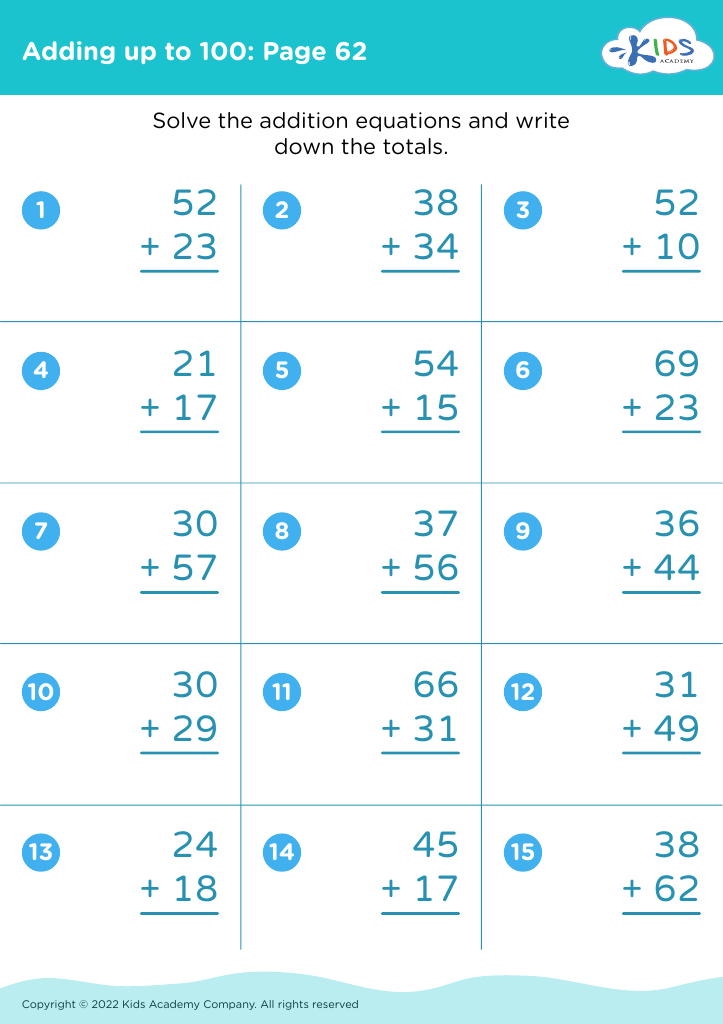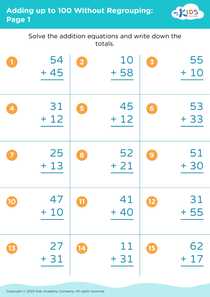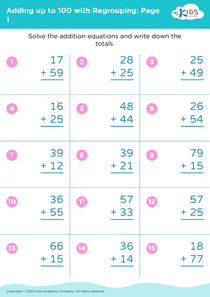Fine Motor Skills Adding up to 100 Misc Worksheets for 8-Year-Olds
5 filtered results
-
From - To
Enhance your 8-year-old's fine motor skills while mastering math with our "Fine Motor Skills Adding up to 100 Misc Worksheets." This curated collection of engaging worksheets combines essential mathematical exercises with fun activities designed to develop dexterity and hand-eye coordination. As children practice addition and solve problems reaching up to 100, they will also enjoy tracing, coloring, and cutting tasks that promote their fine motor abilities. Perfect for at-home learning or classroom settings, these worksheets aim to make math exciting and hands-on, ensuring your child builds confidence in both their mathematics and motor skills. Download and start the adventure today!
Fine motor skills are vital for children's overall development and academic success, particularly for 8-year-olds who are refining their abilities. These skills involve the coordination of small muscles in the hands and fingers, influencing tasks such as writing, drawing, and manipulating tools. Strong fine motor skills enhance children's handwriting quality, enabling them to express their thoughts and creativity on paper. This correlates directly with academic performance, as students increasingly engage in written assignments and art projects.
Moreover, fine motor skill development aids in fostering independence in daily tasks, such as buttoning clothes or handling utensils. This confidence impacts children's self-esteem and motivation to participate in classroom activities. Parents and teachers play a crucial role in facilitating these skills through engaging activities, such as crafting, playing with modeling clay, or using scissors. Incorporating challenges makes the process enjoyable and can significantly improve focus and patience, preparing children for future responsibilities.
In summary, nurturing fine motor skills adds up to more than just fun activities—it's foundational for academic achievement and life skills. Both parents and teachers should prioritize these developmental milestones to support children's growth and readiness for life beyond the classroom.
















